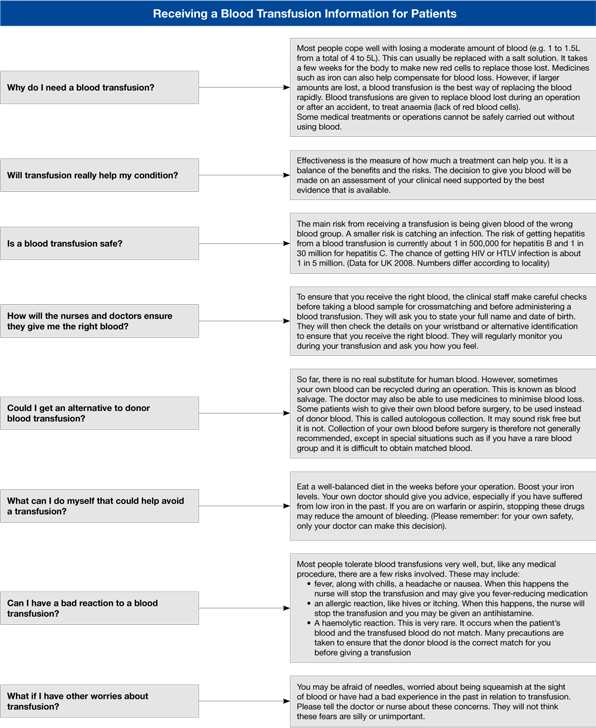Submitted by obuadmin on
In EU member states where data are available the risks associated with receiving a transfusion are small in the context of the totality of risks of hospital care. However, as part of an effective quality system, patients who are able to communicate must be informed in good time about their treatment. Formal consent for transfusion is a requirement in some countries. Regardless of any legal requirement, the clinician has a professional duty to make sure the patient knows if and why a transfusion is required. The discussion should include the reasons why transfusion may be needed and the risks and benefits of receiving blood, (and in some circumstances of not receiving it). There are links to examples of information prepared for patients on the website.
The pre-admission clinic for elective surgery is an ideal opportunity to provide information about transfusion as part of the information given to the patient about the whole process of care. Many EU countries have information leaflets available for patients. Clinical notes should record that the patient has been given information about transfusion.
Questions frequently asked by patients
Figure 7.3 provides some information that may help in responding to questions that patients’ ask about transfusion.
Figure 7.3 Answering patients’ questions about transfusion
(for another example see http://sunnybrook.nextmovelearning.com)

